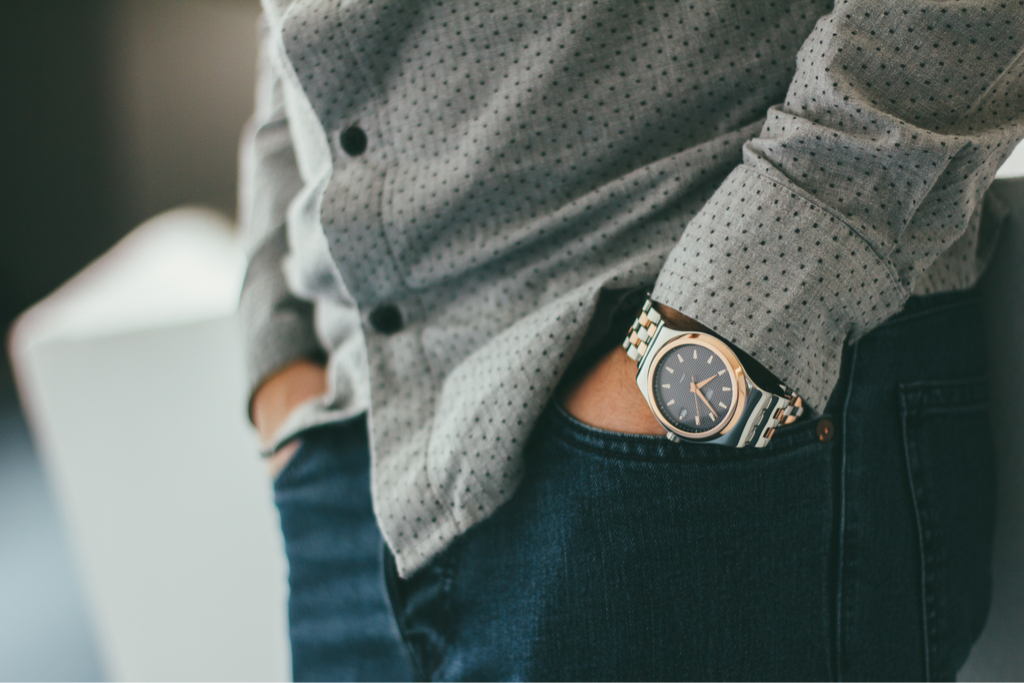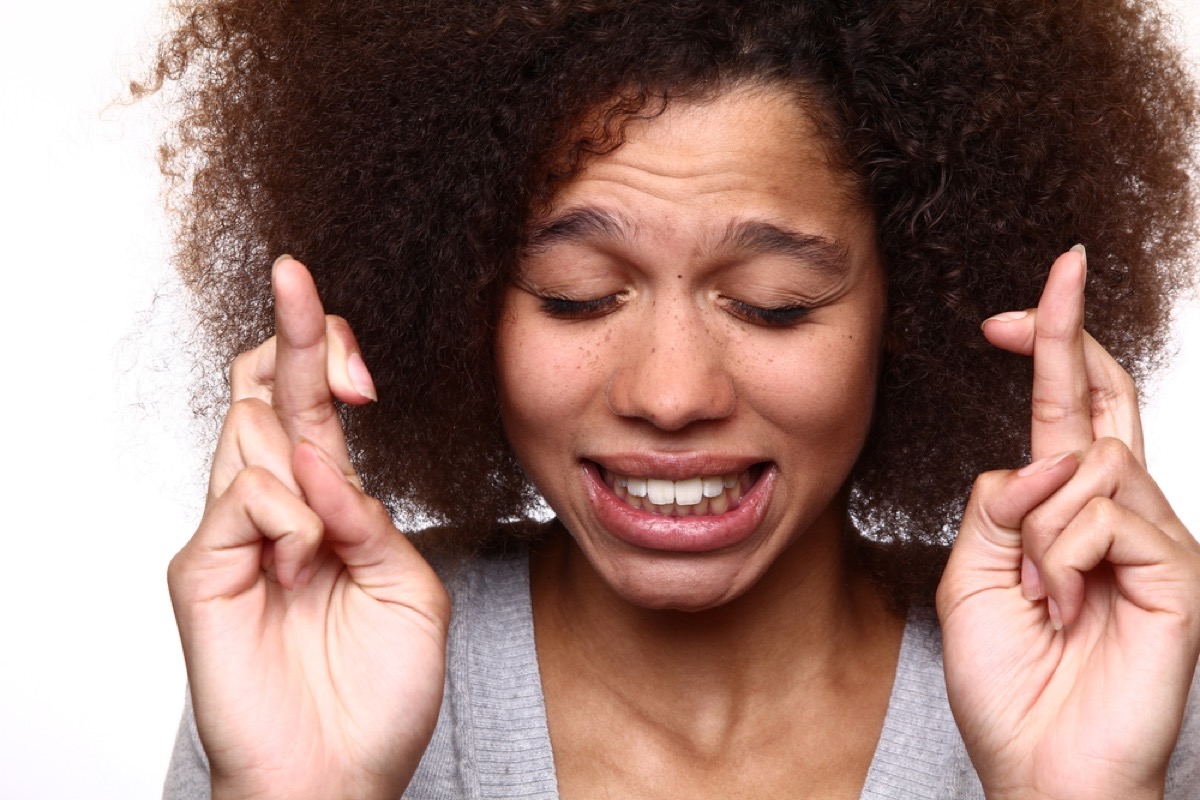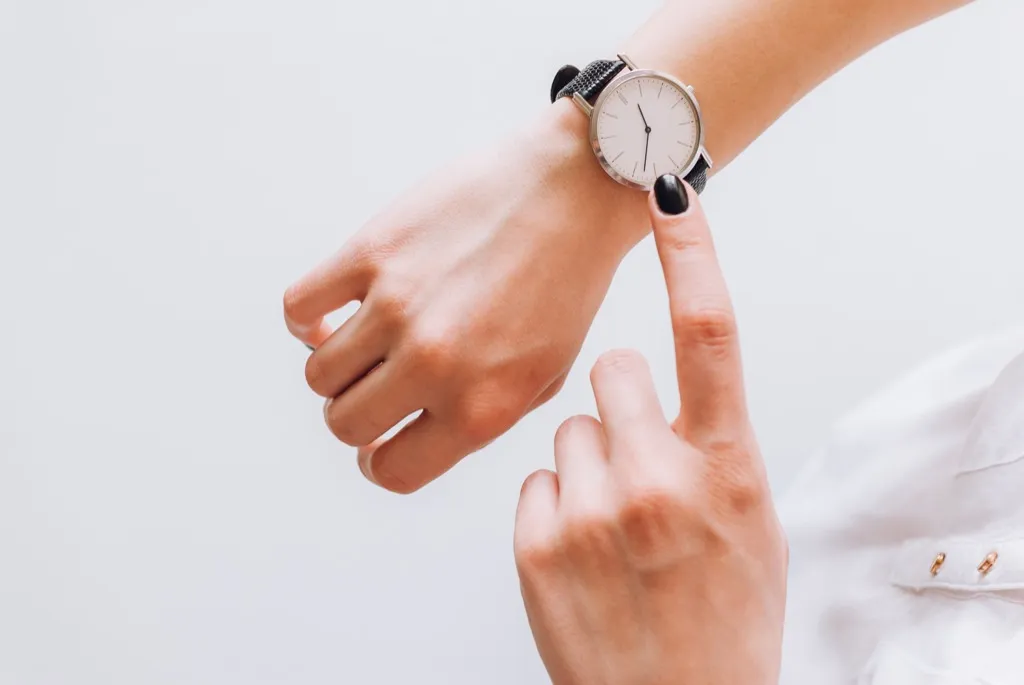15 American Habits That Are Offensive in Other Countries
How not to be an oblivious, obnoxious tourist

There's no denying that America has its fair share of perplexing customs. We paint our bodies for football games, we fly flags off the back of our cars, and we'll deep-fry pretty much anything that passes as edible. But as strange as some American behaviors seem stateside, they're far more confounding to those who didn't grow up with them.
However, it's not just those more overt displays of patriotism and Americanness that are the subject of shock and awe when residents of the States travel overseas. Countless customs that seem completely inoffensive to those raised with them won't pass muster overseas—and we've rounded up the worst offenders. So, before you accidentally become the inadvertent source of someone else's wrath, make sure you're well-acquainted with all of the American habits that are offensive in other countries. And to avoid embarrassment at home or overseas, ditch these 20 Things You're Saying You Didn't Know Were Offensive.
1
Wearing shoes indoors

While keeping your outdoor shoes on when you go inside may not raise any eyebrows in the United States, it may offend your host if you're traveling abroad. In countries like Germany, Austria, Russia, Ukraine, Poland, Japan, Turkey, Israel, and other parts of the Middle East and Asia, wearing your shoes inside is not only considered poor manners, but unhygienic, as well. And for more ways to stay on the right side of your foreign friends, avoid these 15 American Words That Are Offensive in Other Countries.
2
Bull horns

In most of America, raising your first and pinky finger to emulate a bull's horns is generally accepted to mean "rock on," and is commonly displayed by concert attendees. However, make this gesture in Italy, Spain, Portugal, and parts of South America, and you're likely to get an earful—in these countries, this hand symbol is used to indicate to a man that his wife is being unfaithful.
3
Eating with your left hand

If you're at a restaurant in the United States, it's unlikely that anyone will question which hand you choose to eat that burger or slice of pizza from. If you're in India and parts of the Middle East, a person's right hand is traditionally used to consume food, whereas their left hand is generally used to attend to bodily functions, rendering it unsuitable to be used at the dinner table. And for more dining behaviors to avoid, check out these 25 Things You Should Never Do at a Fancy Restaurant.
4
Tipping

As confounding as many Americans find the practice to be, there's no denying that tipping is expected at pretty much every bar and non-self-serve restaurant in the United States. However, despite the ubiquity of tipping stateside, it can be perceived as offensive in other countries, namely Korea and Japan, where servers are paid a standard wage. Anything given in addition to that amount in the form of a tip can be seen as a sign you think workers need more incentive to do their job.
5
Putting out the palm of your hand

If you put your hand out, palm-first, in the United States, that's a good indication you're trying to get someone to stop what they're doing (or perhaps making a reference to '90s "talk to the hand" slang). If you're traveling through Pakistan or Greece, however, it's probably in your best interest to keep this gesture to yourself, as it's interpreted as aggressive to residents of these countries.
6
Keeping your hands in your pockets

While keeping your hands in your pockets may seem like an easy way to avoid inadvertently offending others, in some countries, doing so may get you in trouble. If you're traveling in Japan or Korea, specifically, keeping your hands in your pockets is often seen as a sign of arrogance. In September 2018, Monty Python star Michael Palin found this out the hard way when he was forced to reshoot scenes from his documentary, Michael Palin in North Korea, because he had his hands in his pockets while standing near North Korean monuments, a gesture deemed disrespectful by locals. And for more ways to avoid offending others, check out these 40 Things You Should Never Say to Your Boss.
7
Taking the back seat in a taxi

In the United States, the front passenger seat of a taxi is typically regarded as the driver's domain, a safe place to store their possessions far from passengers' prying eyes. If you're in Scotland, Australia, New Zealand, the Netherlands, or parts of Ireland, however, you'll want to grab the front set for yourself, as sitting in the back, unless explicitly asked to do so, is considered rude.
8
Not finishing your food

Parents in the United States may be famous for encouraging their children to become members of the clean plate club, but overseas, there's an even stronger cultural imperative to finish one's meal. In India and Japan, for instance, not eating everything on your plate is not only considered wasteful, but an indication that you didn't enjoy what was served. And if you want to keep your health intact on your travels, steer clear of these 20 Foods Doctors Always Avoid While Traveling.
9
Thumbs up

There are few hand gestures in the United States less likely to cause offense than the thumbs up, overwhelmingly understood to be a way of telling others that you're happy or that things have been done to your satisfaction. That said, if you're in Greece, Western Africa, the Middle East, or parts of Russia, you'll want to keep this gesture to yourself, as it's generally understood to mean "up yours."
10
Blowing your nose in public

While listening to someone blow their nose isn't exactly a pleasure anywhere in the world, it likely won't have people giving you the side-eye stateside. In China, Japan, France, and parts of the Middle East, clearing your nasal passages is considered offensive—and something you're better off excusing yourself to the restroom to do. And if you're eager to keep those sniffles at bay, master these 30 Smart Ways to Avoid Getting Sick When You Travel.
11
Crossing your fingers

Crossing your fingers in the United States usually means one thing: you're wishing for good luck. If you're in Vietnam, you'll have to get your luck by another means—crossing your fingers is widely accepted as a crude means of mimicking female genitalia.
12
Running late

Arriving exactly on the dot to a social gathering in the United States might just be stranger to your host than dropping by an hour after the festivities begin. But if you find yourself in Germany, you'd better be diligent about budgeting your time—arriving fashionably late in Deutschland is considered extremely rude.
13
Beckoning with your hand

In the United States, if you're calling someone over and indicating as much with your hand, you'd be hard-pressed to find someone who finds your gesture offensive. The same can't be said for those traveling in the Philippines, though, where the hand signal is typically associated with calling a dog, and therefore offensive to humans.
14
Laughing with your mouth open

Laughing your head off at a friend's joke in the United States? Totally acceptable. Doing the same—particularly with an open mouth—in Japan? Don't risk it—doing so is generally considered rude. If you can't help yourself, put your hand over your mouth while you crack up. And if you're in the mood for a good laugh, peruse our list of 50 Jokes That Are So Bad They're Actually Funny.
15
Sipping your alcohol

Chug a glass of wine or down a cocktail in one go in the States and don't be surprised if your drinking companion starts asking questions about your wellbeing. If you're in Russia or Georgia, not finishing your drink in one gulp is just as bad—in the former, vodka is to be drunk in one shot, while in the latter, that small glass of wine you're offered should be consumed with a single sip. And if you need some extra incentive to drink up, discover these 80 Amazing Benefits of Wine.
To discover more amazing secrets about living your best life, click here to follow us on Instagram!





















